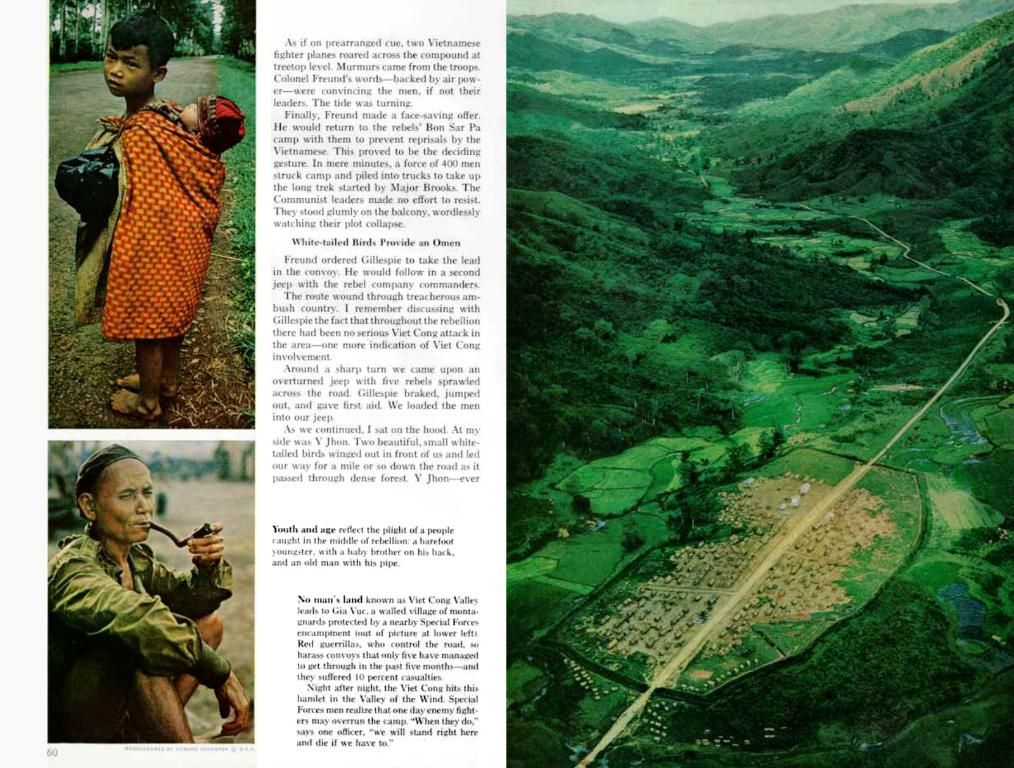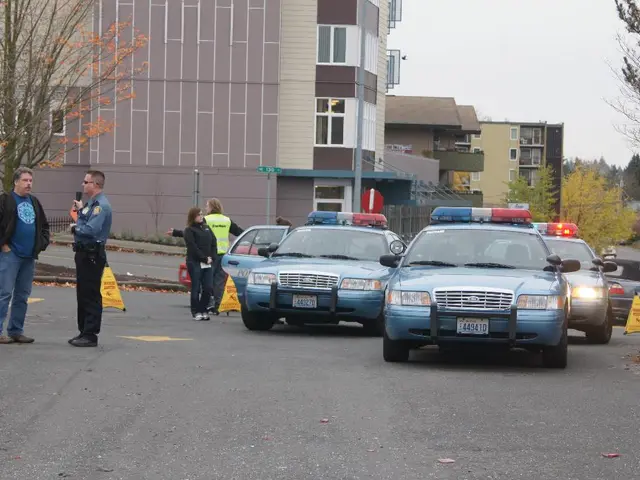A Fresh Start in Syria
Road to Syrian Reconstruction: Remembrance and Rejoicing Amidst Over a Decade of Devastation
Witnessing the joy of a long-awaited return, Salam Doudieh Alabed, a 37-year-old woman of Syrian descent, finally steps foot on her homeland after a decade in Madrid. The fall of the Al Assad dynasty, managed by a swift 11-day offensive by the Levant Liberation Organization (HTS), paved the way for this moment. Here, Salam finds a mix of excitement and wariness as she navigates the remnants of her country after years of dictatorship.
Upon arrival, she's overwhelmed by the destruction that dominates the architectural landscape of the cities. The Bab Sharqi neighborhood, once her educational playground, now serves as a grim reminder of the past. Recalling the happiest years of her life, she retraces her steps through familiar streets, encountering old hangouts, shops, and, although much-changed, a society still reeling from the weight of history.
Visiting Yarmouk, the refugee camp for the world's largest Palestinian population, leaves Salam speechless. The camp, her childhood home, is a shocking testament to the wreckage caused by years of war. Even her street, her heart's sanctuary, collapses under the weight of time and hate. Yet, amid the rubble, the power of memory perseveres.
"Destruction governed the architecture of cities and neighborhoods" she mutters, planting a seed of hope amidst the despair, "At least we had some walls left." With a sense of victory, she declares, "Yarmouk needs a lot of support; I want to help, I have many ideas."
Walking through the ruins, she is awestruck by the capacity for destruction and the resilience of the human spirit. Observing her fellow citizens, she notices a mixture of anxiety over security and worry about economic instability. Got a story to tell, Salam is busy documenting and advocating for rebuilding her beloved Syria.
Facing the Past, Embracing the Future
Unclear about her identity during her childhood, Salam discovers her Syrian heritage, provoked by the revolution and her marriage to a Spanish man. The conflict awakens her Syrian side, and she decides to seek citizenship recognition despite gender-based restrictions. Identifying with her mother's birthplace, Syria carries an emotional weight She aspires to return in the coming months and make her home here once more.
Freshly arrived, she also Crosses paths with Amjed Hamoud, a Syrian lawyer with a humanitarian heart. Together, they strive to build a new Syria, one that hopefully-and painfully-exorcises the ghosts of its dreadful past, focusing on justice, memory, and reparation. As an observer, Amjed vows to remain vigilant to any human rights violations in the transition period.
Damascus, once gagged by an iron grip, now breathes freely as press freedom ecstatically reemerges after a decade of darkness. Enab Baladi, the media outlet born in the heart of the revolution, steps back into Syria, sharing the stories of conflict-torn lives and inspiring others to reclaim their democracy.
The novel "When the Revolution Ends" by Spanish-Syrian writer Leila Nachatawi finds a new meaning in this brave, hopeful phase. With a hint of nostalgia, Nachatawi reveals that the protagonists of her book have returned to Syria, eager to contribute to the rebuilding of their homeland. As she puts it, "Without that revolution, there would be nothing, there would be no future."
However, the battle is not over. The world's powers continue to play chess on Syrian soil, each with their own geopolitical interests, regardless of the cost for the Syrian people. Israel, Turkey, and Gulf countries maintain a watchful eye, further complicating Syria's fraught path towards rebuilding and recovery.
Amidst these challenges, one truth remains undeniable: Syria is its people, who strive for peace, justice, and the right to govern their own land without tyranny. The Syrian spirit refuses to be crushed, persisting in the face of adversity, and fiercely advocating for a brighter future.
- Amjed Hamoud, a Syrian lawyer, strives to build a new Syria, focusing on justice, memory, and reparation, aiming to exorcise the ghosts of its troubled past.
- Leila Nachatawi, a Spanish-Syrian writer, finds new meaning in her novel, "When the Revolution Ends," as the protagonists in the book have returned to Syria, eager to contribute to the rebuilding of their homeland.
- Salam Doudieh Alabed, in the midst of the ruins, is awestruck by the capacity for destruction and the resilience of the human spirit, as she documents and advocates for rebuilding her beloved Syria.
- Despite the ongoing geopolitical interests of world powers, Syria remains a country of its people, who strive for peace, justice, and the right to govern their own land without tyranny, refusing to be crushed in the face of adversity.








